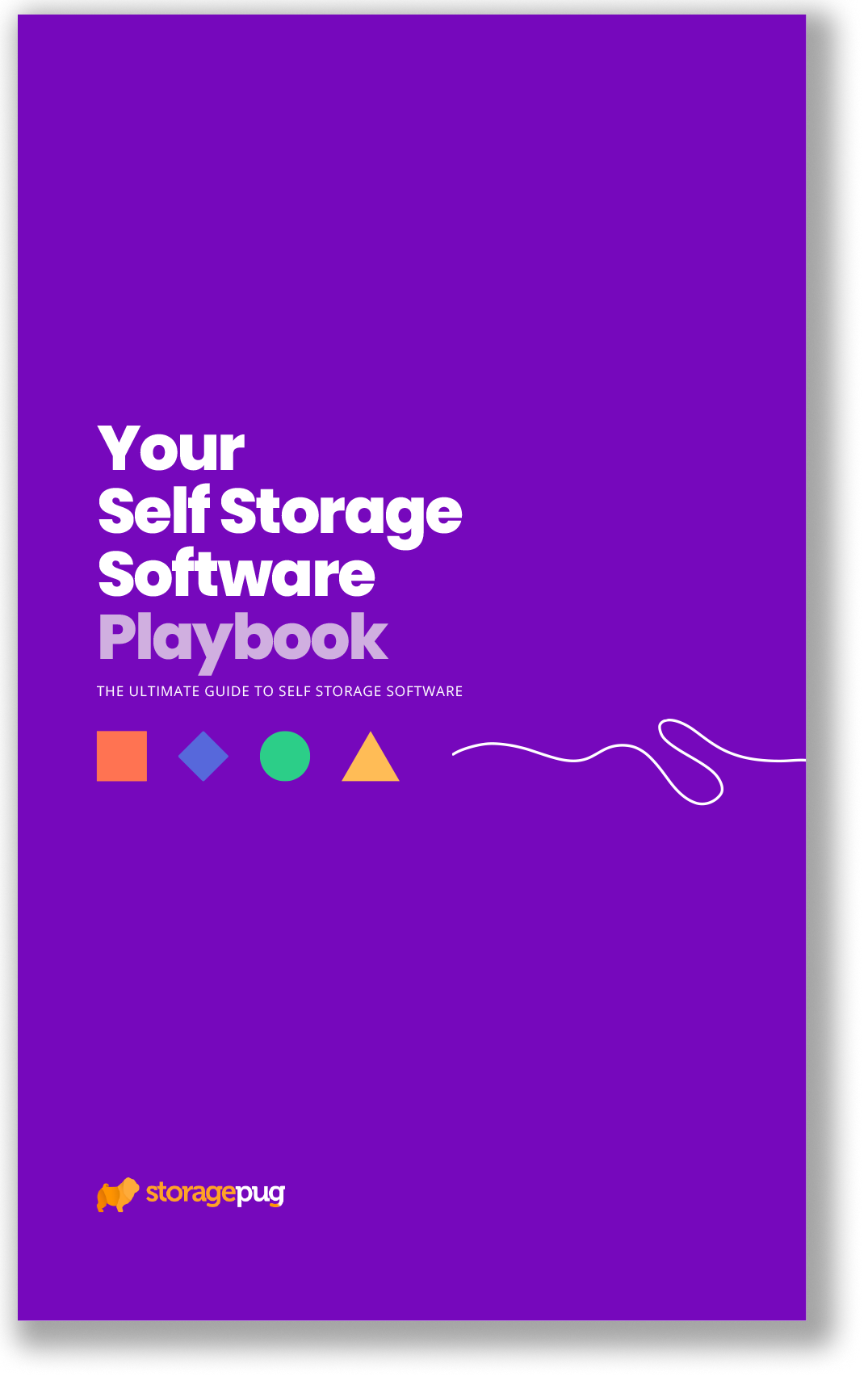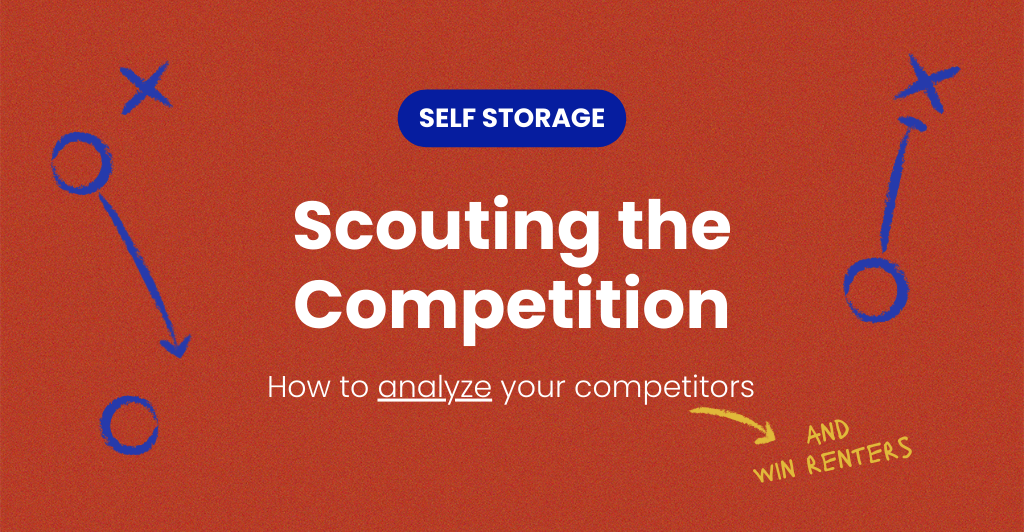How confident are you in your self storage rental agreement?
Does it answer all your customers’ questions? Is it clear, concise, and comprehensive? Or is it just good enough?
Your self storage rental agreement is the contract between your business and every tenant you rent to. Every customer you have signs it, and it governs the interactions between you and the customer.
Your self storage rental agreement is also what protects you if there’s a disagreement, or worse, a lawsuit. Your self storage rental agreement should lay out exactly what services you’ll be performing in exchange for the rental fee, and it should include what you expect of your tenants as well.
All that to say, the text of your self storage rental agreement matters. So, what exactly does your self storage rental agreement need to cover? And how can you be sure it’s covered well?
What Must a Rental Agreement for a Self Storage Facility Include?
StoragePug isn’t a law firm, and we can’t give you specific legal advice on how to word your self storage rental agreement. What we can do, though, is help you plan out what your self storage rental agreement needs to cover from a customer experience standpoint.
If your tenants understand exactly what you will be providing, what you’re liable for, and what you aren't, you can hopefully reduce disagreements and delinquency. Once you’ve created a good rental agreement, your self storage software can help you communicate it clearly to your tenants as well.
Looking for existing rental agreements to base yours on is a great starting point.

Sample Self Storage Rental Agreement
The legal side of self storage is complicated, partially because every state has different laws regarding the industry. This means you don’t need to look for a national lease example–you need a state-specific rental agreement. This means consulting your state self storage association.
State self storage associations are a great resource for all self storage operators, and they should be the first place you start if you have any questions or need any assistance. Many state associations will offer a sample self storage rental agreement to members, and the national self storage association offers a self storage legal network you can buy into.
Finding self storage-specific legal counsel can also be very beneficial. While general-practice legal help can advise you on the legality of your lease, a self storage lawyer will be better positioned to help you craft a lease that covers all of your business.
What Needs to be in a Self Storage Rental Agreement
You need to be certain your self storage rental agreement spells out exactly what you’ll be providing and what you won’t. You also need to be sure that it covers potential problems that could occur, such as spelling out the lien process.
Pug Pro Tip: Your lease needs to be legally sound, but it also needs to communicate to your customer.
Communication is key. A good onboarding experience is vital in creating a sustainable customer relationship. Here are some areas you need to be sure your customer understands:
Rental - You and the tenant agree to exchange money for the rental of a property in which they can store certain items, park their vehicle, or whatever else your facility offers. This is the basis of your relationship with the customer, and the terms should be crystal clear.
Length of contract - You and the tenant agree to pursue this relationship for a certain length of time. This can be annual, by the month, or whatever arrangement you deem appropriate. You should also clarify that after this time period, you will be able to adjust the rates you charge for rental.

Termination and tenant conduct - This should spell out the circumstances under which you are able to terminate the lease before it runs out. Specify the expected conduct of tenants and the people they bring to the facility, and outline what behavior will result in termination. Many operators retain the right to evict a tenant for unspecified reasons, but you’ll want to consult a lawyer to see if your state allows such provisions.
Security - Specify that you are not liable for damage to the items they’re storing. Break-ins, fires, floods, etc. - you want your tenants to know ahead of time what will happen in the case of a disaster. Be clear that you are providing space only, and are not guaranteeing the safety of their belongings, even if you have cameras and a fence.
Insurance - As with security, be very clear about what you require as far as insurance goes. Make sure the tenant understands that you will not be covering any damages from theft, natural disasters, pests, or anything else. If you don’t require insurance, you can still suggest a few places they can find insurance for their own protection.
Lien sale - Give the specifics of what a lien process will look like, including the circumstances you’ll initiate a lien under and what they can do to avoid it. Make sure the tenant knows how to claim their stuff by paying back fees before it goes to auction, as well as how you’ll be contacting them throughout the process.
Whew! And that’s the short version.
These are the points you need to be sure you communicate to your tenants. Talk to a lawyer or your local self storage organization to ensure your lease will cover you in court.
Communicating Your Self Storage Rental Agreement to Your Tenants
Once you have all the above points fleshed out, you can start brainstorming the best way to communicate them to your tenants!
Remember: the goal is to improve the customer experience by ensuring everyone understands the lease before a problem comes up!
Self Storage Rental Agreement Customer Experience
No one wants to read ten pages of eight-point legalese–unfortunately, your lease will probably end up being dense in order to cover all the bases. Your lease is similar to the terms and conditions on every new app, and most people don't read them.
Because of this, if your tenant breaks the terms of the lease, they might be surprised that you’re charging them fines or kicking them out of their unit!
This is bad, and not just because you’ve now got an irate tenant in your office demanding answers. Even when you have to kick a tenant out or send a unit to lien, you want them to feel like they’ve been treated fairly. These tenants have friends and family in your community, and if they feel like you cheated them, they’ll definitely be telling people about it.

So, how do you avoid this? You’re always going to have tenants that aren’t happy with you, but you can reduce the frequency by setting the right expectations. You do need your tenants to sign that big block of text in the lease, but you can also provide the information in a more digestible form.
This can be in the form of a cheat sheet–a set of bullet points outlining the information in the section above. It can also be a series of notifications spaced out during the rental process so your tenant isn’t overwhelmed by information.
Software and Self Storage Rental Agreements
This is where your self storage management software can help. Most PMSs can send out different notifications as customers hit different milestones in the process. For example, if you wanted to send a set of lease highlights, your PMS could activate that message when the tenant starts or completes the e-sign process.

Automation is your friend here. While a personal touch is nice, completing a dozen-step process by hand for each new tenant is exhausting and prone to mistakes. And this is one of those things that computers are great at. Consider adding a step-by-step process of explaining the lease, and do your best to keep it simple.
Texting can be a good way to communicate this information to your customer as well. Customers are more likely to open and read a text than an email, and texting is preferred to calling by a majority of customers.

Be sure your customers understand what you’ll be providing, and what is expected of them. That won’t eliminate all confusion and conflict, but it can help. You want every customer to feel as if they’ve been treated fairly.
Don’t forget: happy customers are your greatest marketing asset!
Return to Top
See some of my other favorite posts:
At StoragePug, we build self storage websites that make it easy for new customers to find you and easy for them to rent from you.









![[BASICS] 5 Minute Data & Reports for Self Storage Featured Image](https://cdn.storagepug.com/hubfs/%5BBASICS%5D%205%20Minute%20Data%20&%20Reports%20for%20Self%20Storage.png)
